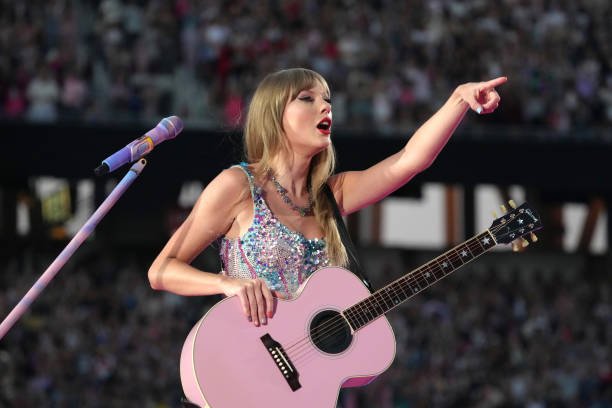Entertainment
Why do Taylor Swift tickets cost so much?

Taylor Swift Tickets for eagerly awaited Eras Tour stop in the United Kingdom go on resale today (August 1) at 10 a.m.
Taylor Swift’s London, Edinburgh, Liverpool, and Cardiff performances for next year sold out in minutes last month as hundreds of Swifties scrambled to buy tickets through Ticketmaster and AXS. Because of the high demand for tickets, a stringent system was put in place to ensure that only those who had pre-registered with the providers and been given a special code could purchase them.
Fans who missed out on tickets last month will be relieved to learn that today’s resale, which begins on provider websites at 4 p.m., does not require a registration code.
According to The Mirror, all you need is a Ticketmaster or AXS account and the patience to wait in a potentially long virtual queue in order to purchase tickets.
Why are Taylor Swift tickets for concert so expensive?
Swift’s next sold-out gigs at SoFi Stadium in Inglewood had original ticket prices ranging from $49 to $449. Tickets for the opening night are already selling on StubHub for anywhere from $800 to $11,000.
How did we get concert tickets that cost more than a month’s worth of mortgage payments? It’s a… knotty answer.
The artists, promoters, venues, ticketing companies, and resellers who sell tickets after the box office sells out all affect concert ticket prices.
Promoters link acts to venues. If the concert doesn’t sell enough tickets, they lose. They organise and promote shows, which raises ticket prices.
Top artists like Swift can inform promoters how to price tickets and choose venues. These selections are made for smaller actions.
Bob Lefsetz, a music-industry analyst and former label executive, said bands have authority over ticketing pricing and resale restrictions if the principal ticket seller has its own platform, but they pay the ticket seller to take the heat for such decisions.
Promoters pay venues for events through ticket sales. Venues may levy a facility fee, adding to the list of fees at checkout. They may also reserve seats for suite owners and loyalty programme members.
Live Nation Entertainment (which owns Ticketmaster) owns or has exclusive partnerships with some venues.
Promoters can book “open buildings.” However, every facility has a ticketing contract that compels the ticketing corporation to pay in advance to sell seats.
Ticketmaster has the money and market share to offer tickets for high-demand events, according to Lefsetz.
StubHub and SeatGeek sell tickets customers can’t use. In initial sales, brokers use teams or software bots to outbid fans for tickets.
According to the GAO, event promoters sometimes sell tickets through brokers “to capture a share of higher secondary market prices without the reputation risk of raising an event’s ticket prices directly.”
“Professional brokers represent either the majority or overwhelming majority of ticket sales on their sites,” the GAO reported.
StubHub disputes the GAO’s assessment, classifying less than 1% of last year’s ticket sellers as brokers.
Some resale services propose ticket prices, but sellers decide them. Because sites don’t regulate seller prices, ticket costs might rise.
StubHub representative Jessica Finn called it a market-driven platform.
So this is really about what sellers think the price, the value of the ticket is, and what buyers think, and they effectively agree on it with a purchase…. The market fluctuates, and we don’t interfere.











